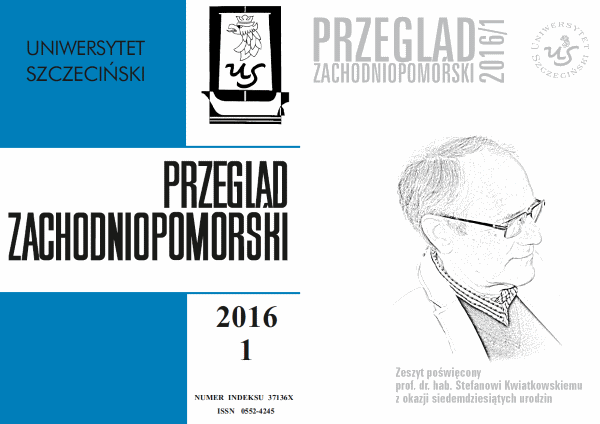Władztwo rady i gmina w reprezentacji dużych miast pruskich w średniowieczu
The control of the council and the district community in the representation of the big Prussian towns in the middle ages
Author(s): Roman CzajaSubject(s): History, Social history, Middle Ages
Published by: Wydawnictwo Naukowe Uniwersytetu Szczecińskiego
Keywords: The control of the council and the district community in the representation of the big Prussian towns in the middle ages
Summary/Abstract: The purpose of the article has been to analyse the way the big Prussian towns presented their own political organisation and especially the form they exercised their power. The author attempts to answer the question to which extent the presented image took into consideration the contribution of the citizens’ community in the control over the town and in the creation of the governing bodies, and to which extent the town was presented as a community under the control of the Council. The basis for the conclusions were written sources. The author has proved that until the beginning of the 16th century the town was represented as a community of its citizens, acting directly in corpore and through its administrative and judicial bodies. The fact that at the turn of the 13th and 14th centuries the regime in big Prussian towns became soviet in its character caused that also in the representation of the town the control of the council over the commune was started to be emphasised. In spite of the monopolising of power by the merchant oligarchy and in spite of the regime reality the town was presented as a community whose citizens participated in making laws and decisions in the interests of the common good. That was the model of communal power that was especially emphasised in times of internal conflict and external threats. Yet, unlike the homogenous community of commune civitatis or dy bürger algemeyne that appeared in the sources from the 13th century and the first half of 14th century the late Middle Ages commune seems to have been a diversified community created by various professional groups (merchants, artisans) and it acted through different bodies: a council, courts of law, guilds.
Journal: Przegląd Zachodniopomorski
- Issue Year: 31/2016
- Issue No: 01
- Page Range: 27-39
- Page Count: 13
- Language: Polish

